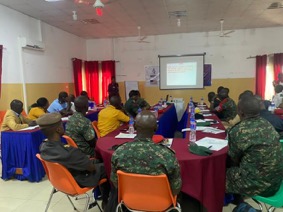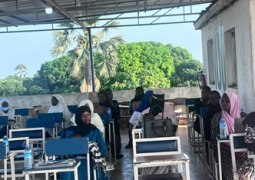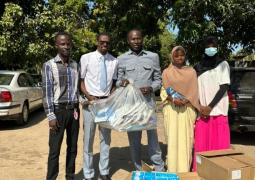
The training of trainers held at the National Nutrition Agency (NaNA) conference hall brought together 40 participants from various security services such as the Gambia Police Force, the Gambia Armed Forces, the Drug Law Enforcement Agency - Gambia, the Gambia Prison Service, the Gambia Immigration Department and the Gambia Fire and Rescue Services.
The training was funded by the US Embassy in The Gambia under the theme “Strengthening Local Capacity for Greater Accountability and Respect for Human Rights in The Gambia.”
Topics covered during the training included the role and mandate of the National Human Rights Commission, the role and qualities of trainer, principles of effective training, the right to freedom of assembly and peaceful demonstration.
Other areas included the rule of law enforcement in public order management, public management formation and tactics, code of conduct for police officers, re-guidelines on policing public assemblies in The Gambia, the convention on torture, and prevention and prohibition of torture Act 2023.
Speaking at the closing ceremony, Emamnuel Daniel Joof, chairperson of the National Human Rights Commission said that the Police have been given constitutional powers to protect lives and properties, detect and prevent crimes, apprehend and prosecute offenders. He added that other security agencies also have some police powers in the job they do.
He added that all security agencies play a significant role as guardians of the rule of law in the country. He said “without an effective security service of the police, the immigration, the army and others, we will have a breakdown of law and order in this country. “You play a very important role.”
Delivering the vote of thanks on behalf the participants, Corporal 5309 Fatou Faye-Kujabi of the Gambia Police Force thanked the National Human Rights Commission for the training.
She noted that the training was unprecedented and a demonstration of the NHRC’s commitment to collaboration and partnership in the provision and protection of human rights in The Gambia.
“The lessons have enlightened our minds and shown us a new path,” she added. She urged participants to conduct step down trainings in their respective institutions for the benefit of their colleagues who were not selected for the training.





